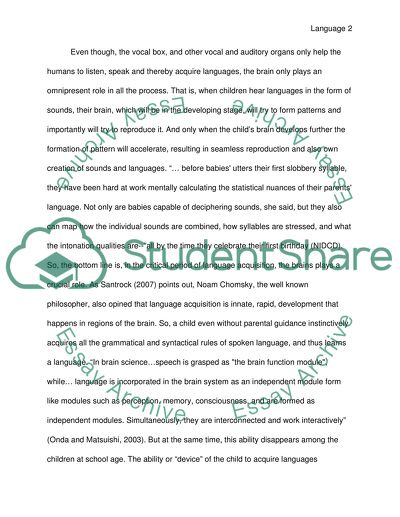Cite this document
(“Evaluate the evidence for a critical period of language acquisition Essay”, n.d.)
Evaluate the evidence for a critical period of language acquisition Essay. Retrieved from https://studentshare.org/miscellaneous/1544250-evaluate-the-evidence-for-a-critical-period-of-language-acquisition-at-what-point-does-the-brain-appear-to-lose-its-plasticity-for-language
Evaluate the evidence for a critical period of language acquisition Essay. Retrieved from https://studentshare.org/miscellaneous/1544250-evaluate-the-evidence-for-a-critical-period-of-language-acquisition-at-what-point-does-the-brain-appear-to-lose-its-plasticity-for-language
(Evaluate the Evidence for a Critical Period of Language Acquisition Essay)
Evaluate the Evidence for a Critical Period of Language Acquisition Essay. https://studentshare.org/miscellaneous/1544250-evaluate-the-evidence-for-a-critical-period-of-language-acquisition-at-what-point-does-the-brain-appear-to-lose-its-plasticity-for-language.
Evaluate the Evidence for a Critical Period of Language Acquisition Essay. https://studentshare.org/miscellaneous/1544250-evaluate-the-evidence-for-a-critical-period-of-language-acquisition-at-what-point-does-the-brain-appear-to-lose-its-plasticity-for-language.
“Evaluate the Evidence for a Critical Period of Language Acquisition Essay”, n.d. https://studentshare.org/miscellaneous/1544250-evaluate-the-evidence-for-a-critical-period-of-language-acquisition-at-what-point-does-the-brain-appear-to-lose-its-plasticity-for-language.


